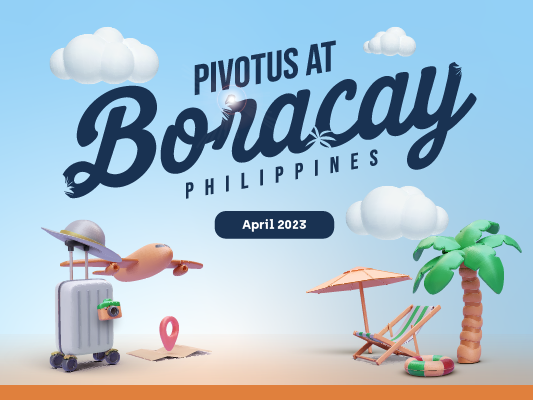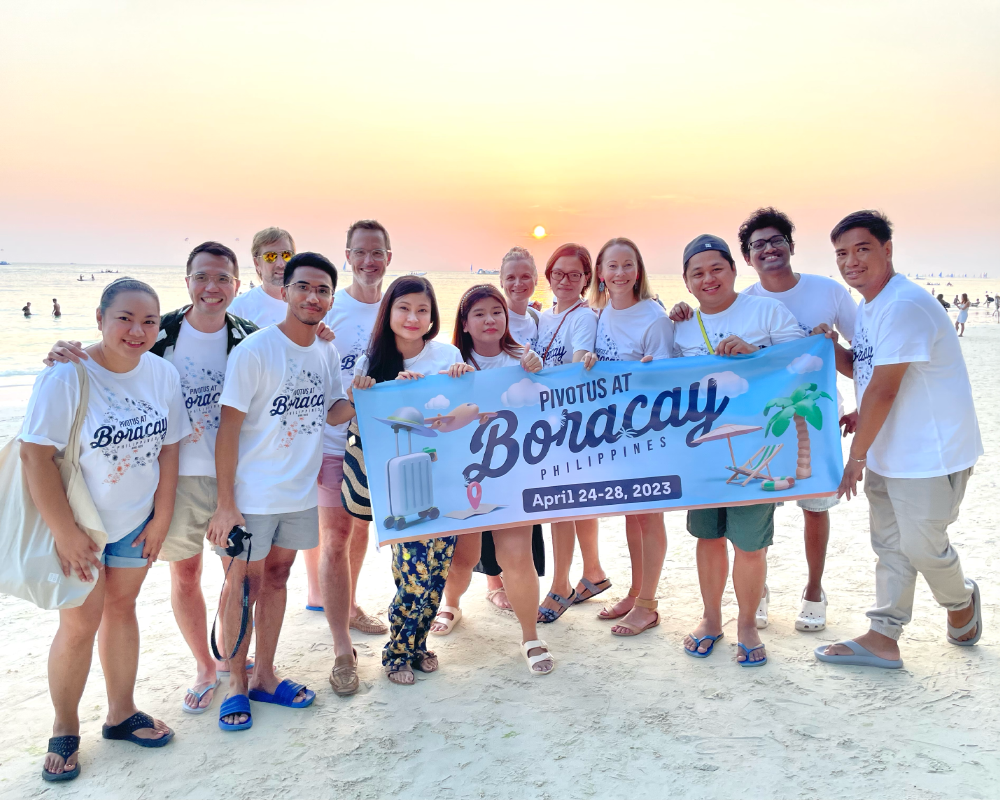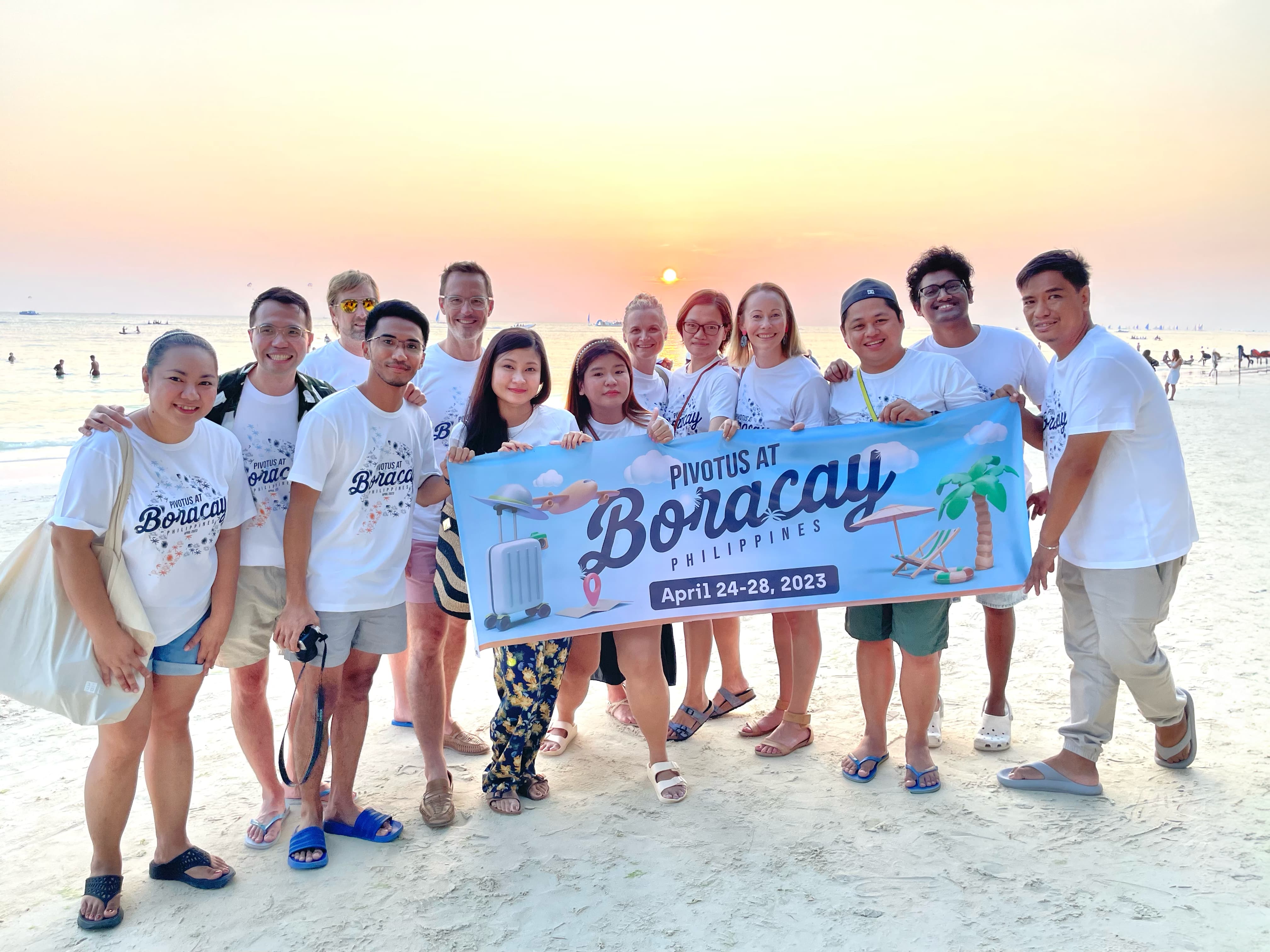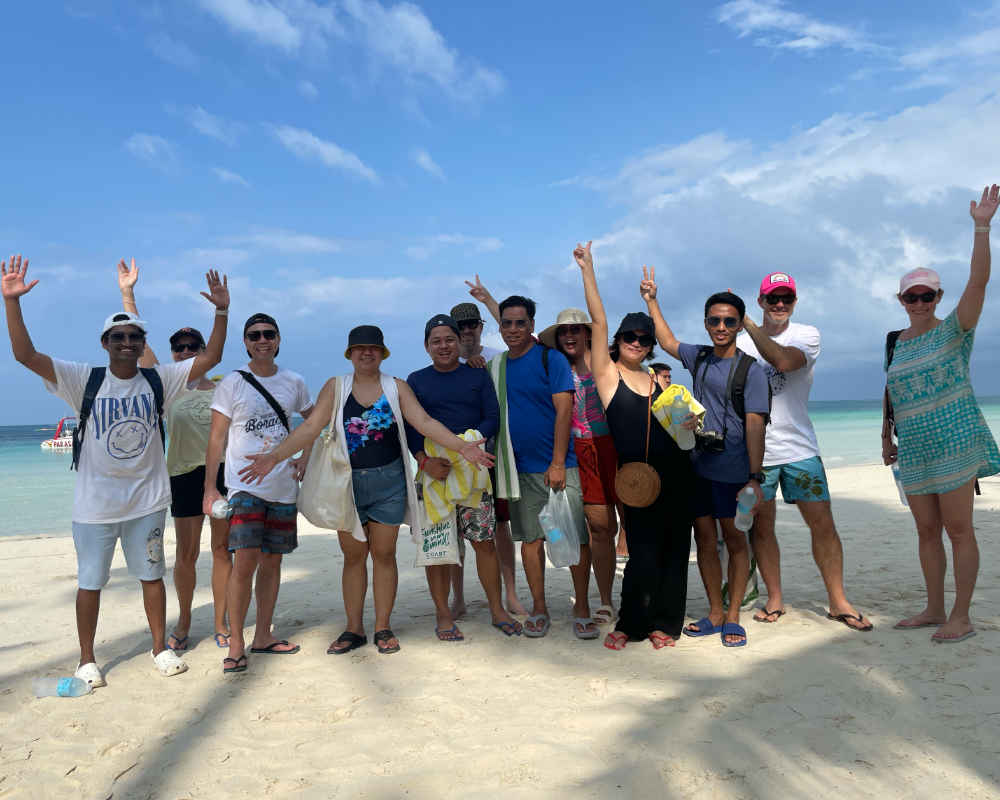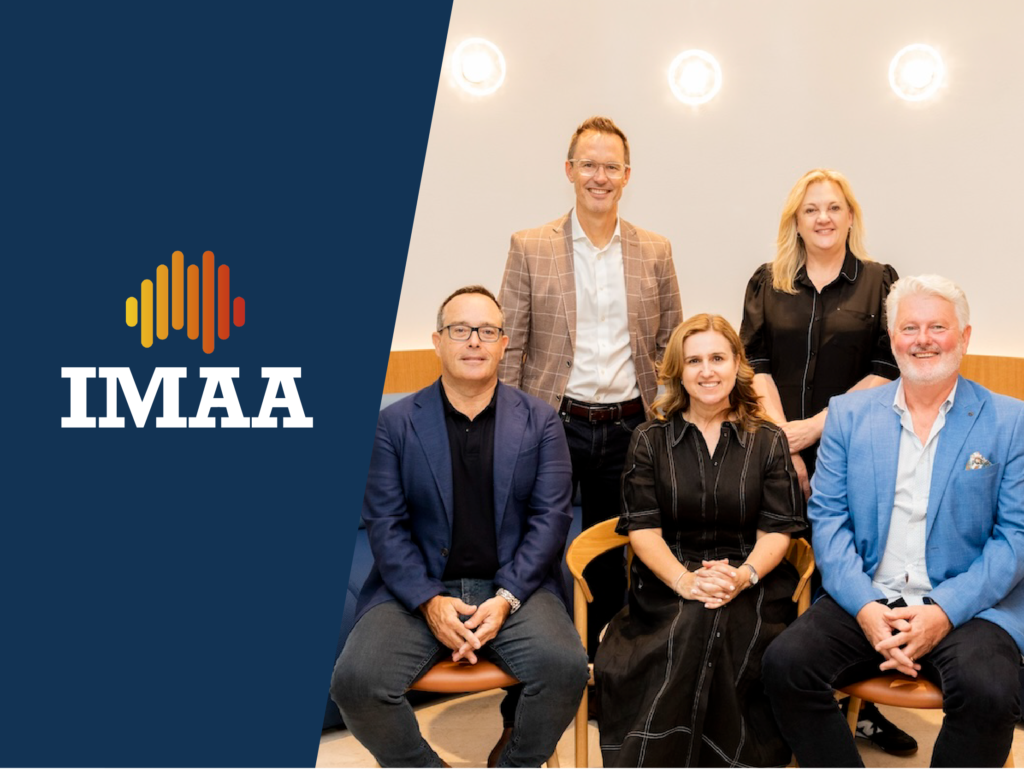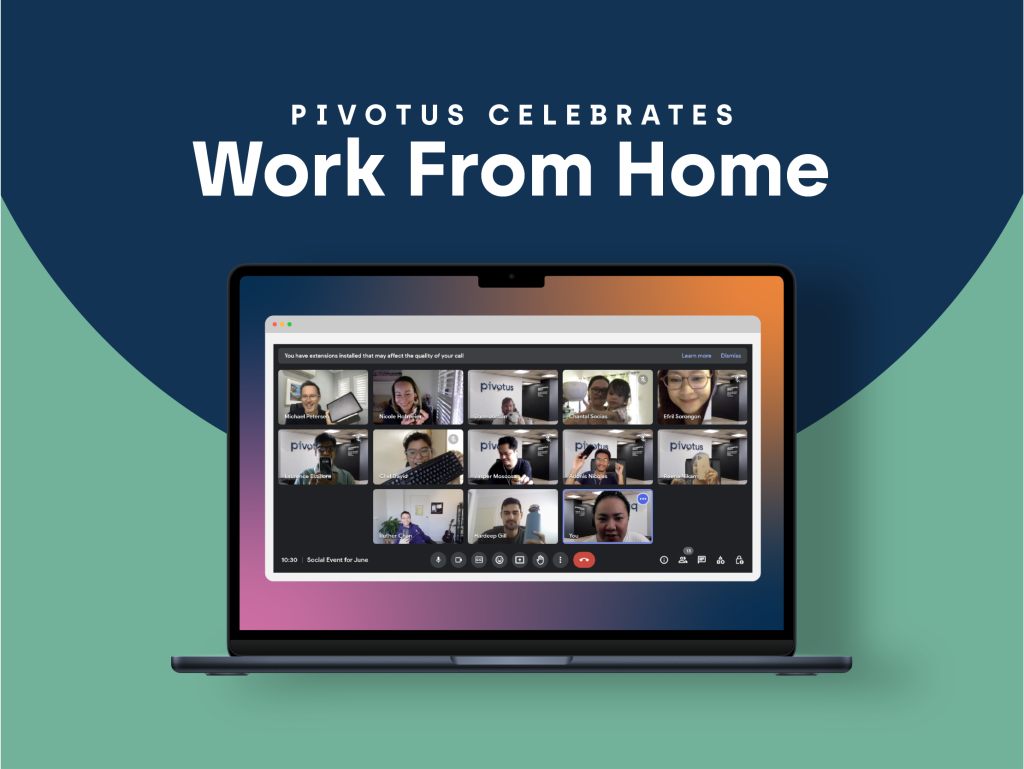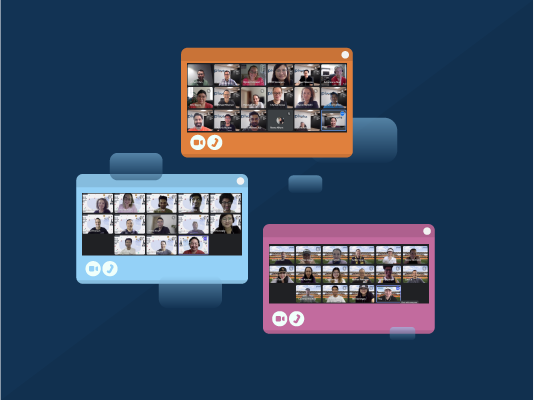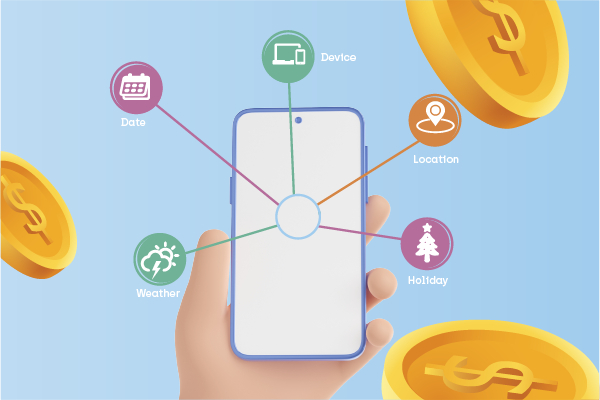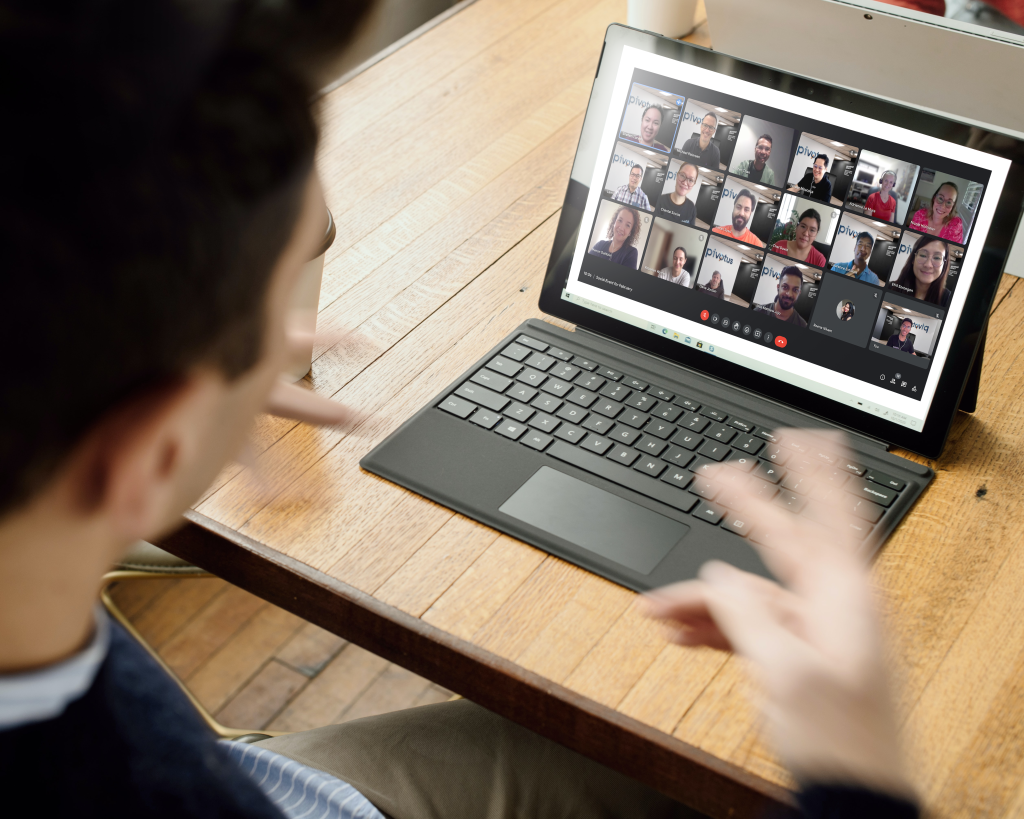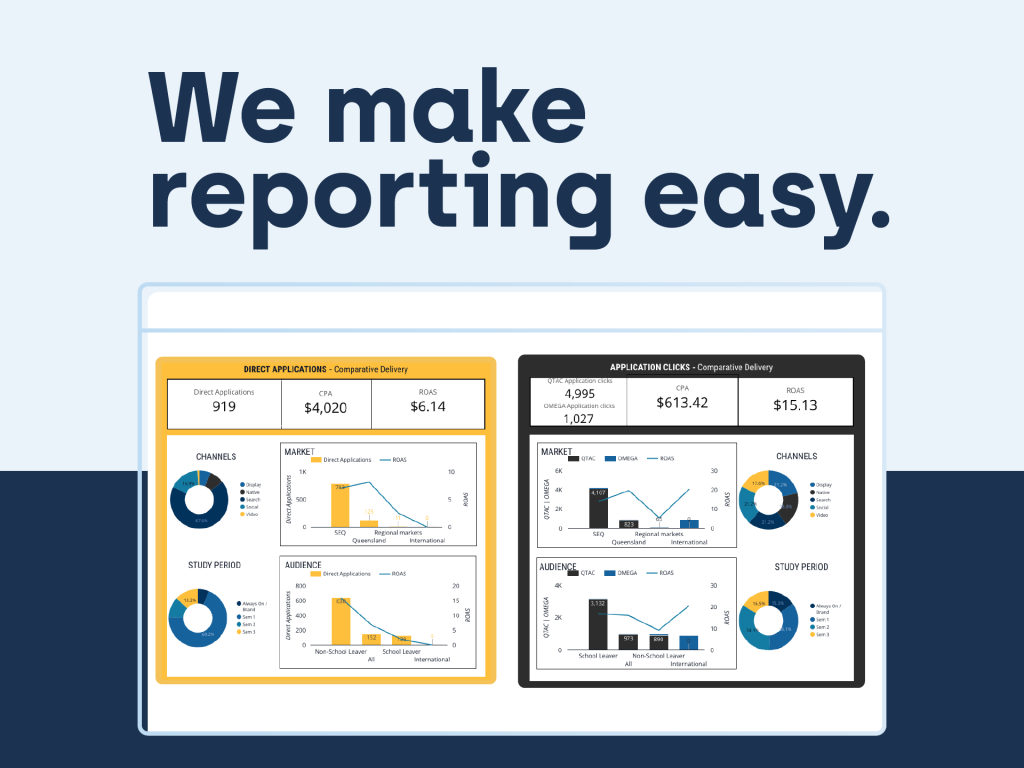Pivotus’ inaugural international company trip was originally planned in April 2019 and booked for May 2020. However, due to Covid, we had to cancel the trip in late March 2020. At that time, refunds were not forthcoming as international borders were not officially closed. As a result, we were left with ¾ of an accommodation refund, no reimbursement from QANTAS, and a few thousand hard-fought-for Air Asia points. It wasn’t until mid-2022 that we were able to reschedule and book the trip for April 25-28, 2023, giving us a second chance, for our first ever, international company trip.
Pivotus, founded in Australia, has a diverse staff base spread across three different countries who work remotely. Therefore, one of the main goals of this trip was to connect on a more personal level and foster greater camaraderie that can be limited in a virtual setting. Finally, we had the opportunity to meet in person on the picturesque white sand island of Boracay, Philippines.
Although five other Pivotus employees were unable to travel for various reasons, six staff from Australia and seven staff from the Philippines successfully made it on the trip.
In a nutshell, the trip was a massive success. Our event goals were achieved through a well-planned program of activities, including private boat trips, cliff diving, lunches, water sports, group dinners, spa treatments, massages, and free time for personal activities and relaxation.
The focus of the trip was to foster relationships, so we excluded specific work-related activities such as strategic planning and training, as we already handle those proficiently online. We wanted to create time for those water cooler conversations that office mates enjoy, whether it was walking home on the beach at 9pm or chatting on the nets of a catamaran as we sailed to our next idyllic inlet. That said, we did have a brief pod breakout session where each group had the opportunity to get to know their specific team members better and discuss topics in a smaller setting.
The success of this trip was greatly influenced by thorough pre-event preparations. By identifying our company travel objectives, we were able to concentrate and develop effective activities and programs. Planning in advance allowed us to make adjustments and changes if needed. The extended lead time was beneficial, with half of it spent on planning and the other half on implementation and action. Appointing a travel agent with expertise in international travel management solutions was invaluable. Their assistance in organising hassle-free flights, travel insurance, hotel accommodation, and airport transfers played a significant role in making this trip possible, especially considering the flight connections and different airlines involved due to staff members from India and Australia.
Securing dependable vendors was also crucial. To ensure the smooth execution of programs and activities, we found and engaged reliable providers well in advance of the trip. We hired restaurants for group dinners, hotels, transport, and a tour guide from a trusted travel guide company. Conducting a famil visit (or “ocular” visit, as it is called in the Philippines) to the location and venues a couple of months ahead of time helped improve the accuracy of our planned activities and allowed us to create contingency plans if needed. We allocated a budget for these visits, and they proved beneficial when we had to pivot our plans during the trip itself.
Creating a comprehensive travel policy was another important aspect. Pivotus established guidelines and procedures to assist staff in making decisions within the parameters of the company’s travel policy.
It was crucial for staff to understand what was expected of them at every stage of the Boracay company trip, as well as what they could expect from the company. The policy covered various aspects, including airline and hotel accommodations, airport transfers, travel safety and risk management, communication methods, travel conduct, allowances and reimbursements, activity choices, visas, and health and medication advice.
Evaluating the project, strategies, and implementation to determine what worked well and what didn’t is part of the post-event activity. In line with our company value of ‘Absolute Honesty’, here are some of the positive and hard-hitting lessons we learned while planning and implementing this trip:
- Determine the travel visa requirements well in advance to avoid last-minute issues. We misread and misinterpreted the requirements for Indian nationals travelling to the Philippines, resulting in the last-minute realisation that two of our staff members from India couldn’t attend despite us having paid for their flights and accommodation.
- In a “cash preferred” economy like the Philippines, secure the necessary funds for the budget and allowances as soon as possible to avoid cash-related problems. Our tour payment from AUD to PHP, sent seven days in advance, didn’t arrive before our tour day and caused some inconvenience, despite the flexibility of the tour operator.
- Paying vendors ahead of the trip is a good strategy to secure bookings and avoid late payments. This is easiest and safest when you have completed a famil visit and personally vetted the vendors. It’s also wise to travel with just enough cash on hand for security reasons.
- Seek local advice. Although our staff members were eager to make the most of their time on the island, we knew that activities in the middle of the day would be impractical due to the heat. Knowing sunset times for beach locations also helped us plan activities, including an all-in company beach cricket extravaganza at dusk on the final evening!
- Understand that many of the activities and expenses incurred during an international trip won’t be tax-deductible for an Australian company. Acknowledging this and being okay with it can increase the ease and enjoyment of the trip.
- Opt for premium tours and services. While other companies might try to cut corners and negotiate deals with multiple vendors to create a day’s activities, we worked with a local tour operator who handled all the individual vendors. Their expertise and seamless service provided us with quality experiences.
- Clearly define who is responsible for group tipping. In our case, the Founder needed to actually listen when the EA/Trip Lead said she would handle the tipping. Double tipping isn’t necessary…
- Recognise that not everyone has extensive flying or international travel experience, especially in recent times. Engaging early with staff members who haven’t travelled much or at all allows you to tailor travel policies, explanations, and the overall experience to accommodate everyone, not just the experienced few.
- Consider implementing objective measurements to assess the trip’s success in achieving planned goals. Although we relied on the overall “vibe” of the pre, during, and post-trip feedback, as well as monitoring our retention rate and post-event profitability, objective metrics could provide more precise insights if desired.
That’s the behind-the-scenes account of planning and implementing Pivotus’ first international company trip. We’ve also created an expense breakdown (actuals) that we can easily share with anyone interested. Please let us know below if you’d like a copy.
Any advice on where we should go next?


